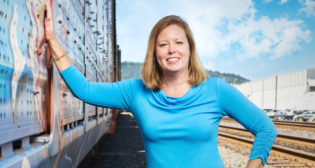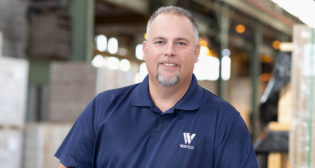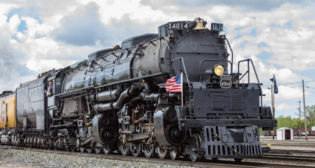
From the Editor: “This is a very exciting field”
Written by Nebraska Digital, administrator
RA: What is CSX doing to attract and retain new people, and more important, to keep them here in this day and age when you have people moving from company to company?
Ward: We offer interesting and challenging work. When I joined the company 31 years ago, one of the older gentlemen told me, if you stay here five years, you’ll stay here the rest of your life, because it gets in your blood. Part of our strategy is how to get them very interested in what we do, and realize the value we bring to our country. We’ve opened a training center in Atlanta called REDI (Railroad Employment and Development Institute), where we bring all of our new-hires. We talk to them about the possibility of a career with the railroad. You may start out as a Conductor, then become an Engineer, an Assistant Trainmaster, so there’s a career progression. On the union workforce, we have jobs that pay very well, and we have one additional benefit that many industries don’t: Our jobs can’t be exported. You have to run the railroad on American soil, so there’s probably better job stability. Obviously when people start their career, the hours are maybe a bit unscheduled. But you build some seniority, so you can have a very good, high-paying job. I think that appeals to many of our new-hires. They like the possibility that they can advance to management. On the management side, the rail renaissance and the ability to grow is attractive to new entrants. If you look at where the railroad industry is now, it’s about investments, about growing, about making a difference in our economy and in our environment.
RA: How would you characterize the educational system in this country, in terms of preparing younger people for jobs in careers in transportation, not only rail but transportation in general?
Ward: There’s a growing awareness of the value of logistics and transportation. A number of universities have dedicated programs in these areas. As raw materials and finished products are sourced worldwide in a global economy, the importance of logistics is becoming more and more apparent. We’re finding people that actually say, this is a very exciting field.
RA: How do you reach out to a university or a college?
Ward: A school in our service territory may have a logistics or transportation program, and we have some name recognition. The key is aligning with the recruitment office as well as some of the professors in the key courses, and making yourself visible, explaining what you are about and why the rail industry is exciting. But probably the most important thing is being there every year, reinforcing that message. When we do our recruiting at colleges, we probably need to emphasize our technological forwardness. Obviously, the younger generation is growing up in a very technologically advanced society, and they’re going to want to know they’re joining a company that embraces that.
More thoughts on the future: “Training for Tomorrow” is a key organizational development theme associated with building leaders for the rail industry at Conrail,” says President Ronald L. Batory, who brought no fewer than 15 new-hires and interns to “The New Railway Age” conference in Washington, D.C. last month. “We have identified employees that bring a heightened level of leadership and educational skills to the workplace. Some have impressive credentials from the military as well as institutions of higher education. Our cadre of new railroaders rotate among craft assignments based on organizational development goals set forth by management.
“A keen interest is essential toward the success of any training. In that regard, we encourage involvement from our supervision and departmental managers to develop, motivate, coach, and mentor new people while selectively capitalizing on enrollment in educational programs offered by our parent companies or sometimes other organizations, such as the conference hosted by Railway Age in Washington, D.C. Our goal is to have internal bench strength to fulfill future supervisory roles among people that truly know and respect the work from the ground up.”
From all of us at the Simmons-Boardman Rail Group, best wishes to all of you for a safe and prosperous 2009.



